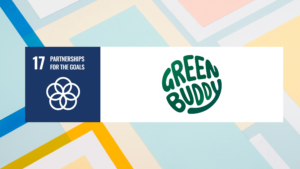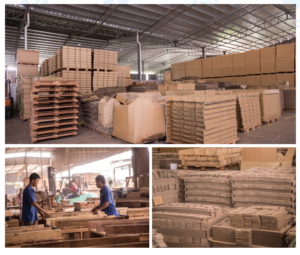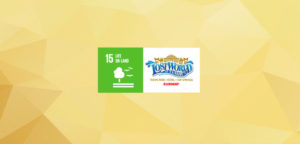
The chosen project for participation is named as Green Market, Green Community. It is a project mainly focusing on sustainable organic waste and recyclables management for three wet markets The vision of the project is to achieve responsible consumption and production along the food supply chain. The objectives areas followed:
to implement segregation of organic waste and recyclables from general waste at source to increase landfill diversion rate, to inculcate good initiative attitude of hawkers for the practice of proper waste disposal management, to create public awareness on the concept of recycling,
serves as a model platform for the growing and diverse movement against food wastage to advocate for change in the food system The collection and management of organic wastes & recyclables from three markets are conducted on daily basis. The waste management activity is strictly executed and monitored by MPP, bound with the law of Local Authorities (Cleanliness) By-laws under the law without offense Natural Resources and Environment Ordinance.
PROJECT RESULT
The project impact is divided into two sections namely, impact towards community and impact towards environment. For community impact, different stakeholders that directly or indirectly involved are summarized as follows (all the number stated are based on approximate number): 350 stalls of hawkers, 3 MPP staffs that in-charged for the project, 3 MPP cleaners, 1000 public, 89 volunteers, 1 local social enterprise (WormingUp) and 3 local farmers, All of the stakeholders especially hawkers were educated with the proper waste segregation through daily operation engagement and periodically awareness campaign. Other than awareness campaign, educational workshop also being carried out for community nearby. To date, the project has successfully managed around 326 metric tonnes of organic wastes and around 3.9 metric tonnes of recyclables from the 3 markets.
Nutrients are recycled/upcycled back into the nature. Resources being conserved while landfilling is avoided. This contributes to responsible production and consumption goals. However, we believe there is still huge possibility to upscale our impacts. More biodegradable waste and recyclables are planned to be collected and managed to further enhance the sustainability of the environment.
HOW HAS THIS PROJECT HELP TO ADVANCE THE CHOSEN SDG?
As to date 326,490.31 kg of organic waste were collected from 3 markets and upcycled into usable agricultural products instead of landfilling. This supports Goal 12 to promote sustainable and efficient ways of recycling wastes from supply chain by recycle back the nutrient source from organic waste back to the chain.
Other than that, this project utilizes minimal resources, such as manpower, electricity, water, fuel, machinery and land to carry out its core activity. During collection and management of organic wastes & recyclables, steps are taken to ensure that minimal impact is caused to the environment, particularly the environment at where we carried out activities. Water, land, soils and air are regularly monitored to ensure they are free of secondary pollution.

Create public awareness
on the concept of recycling
WHAT IMPACT HAS THIS PROJECT CREATED IN THE COMMUNITY / NATION?
This project emphasizes on long term education for the public on proper waste segregation which this practice represent a model civilization of a city. For local organization, this project also nurtures the growth of a local social enterprise, namely WormingUp which always work very closely with MPP for this green project. For local farmers, this project has executed at the land of farming as to promote direct usage of the compost produced to the farmland to save the impact from transportation.
With this project, they are more than happy to benefit from it by win win situation, whereby, they provide the space for organic
waste composting while they get part of the produces for free.
THE TAGLINE FOR UNITED NATIONS SUSTAINABLE DEVELOPMENT GOALS (UNSDGS) IS “LEAVING NO ONE BEHIND.” EXPLAIN HOW YOUR PROJECT HELPS TO REALIZE THE COMMITMENT OF UNSDGS FOR THE FUTURE.
In order to end hunger, the ultimate goal is to achieve food security, improved nutrition and promote sustainable agriculture. Throughout the project, the organic wastes were converted into insect protein (maggots) and organic fertilizer (compost). Both products are natural, chemical free and good for environment to promote sustainable food production that compliance with Goal 2. This project was successfully caught the attention for the policy maker (at Local Council level) to be involved for the SGD Goal 12 – Climate Action. Policy was changed for the three wet market of the projects to combat climate change and its impacts. Throughout the public speaking and awareness campaigns, educational message was delivered to the audiences and provide simple actions and steps on how they can be involved, togetherfight for climate change.



